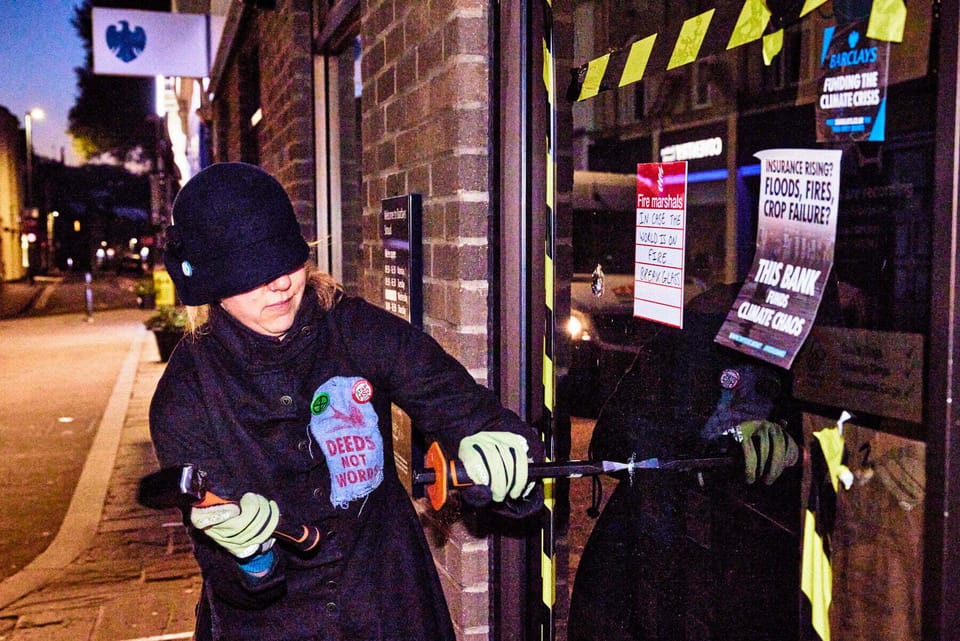XR co-founder protests funding of polluting industries by breaking window at Barclays Bank in Stroud

By Jamie O’Dell
Dr Gail Bradbrook, one of the founders of Extinction Rebellion, broke the window of Barclays Bank in Stroud at around 6am this morning. The action was carried out carefully before opening hours in order to reduce any risk of harm. Dr Bradbrook is already awaiting trial for alleged criminal damage at the Department for Transport in October 2019.
It has been reported by the Stroud Times that a women was arrested at the scene on suspicion of criminal damage and is currently in police custody.

Dr Bradbrook said: “Our leaders are not pushing for rapid action, they are ignoring the science– targets are inadequate and aren’t being met. We are on a path towards the collapse of our civilisation –with billions dying in our children’s lifetimes, according to some scientists. Those who are failing to lead adequate action on the climate and ecological crisis are committing Crimes Against Humanity.”

With reference to a similar quote from Sylvia Pankhurst she added: “Let it be the windows of the banks that are broken not the life support systems of the earth and our children’s future. Let it be the windows of this failed system that are broken not our family across the world.”
Barclays provided $24.58bn of underwriting and lending to large fossil fuel companies in the first nine months of 2020, despite having a commitment to being net-zero by 2050. Furthermore, a report from Bank Check found that no European bank is more implicated in the expansion of fossil fuels than Barclays is.
Divesting from fossil fuels and providing climate finance for climate adaptation and mitigation is a critical step to tackling the climate emergency. There are also growing calls for nations and financial institutions those wealth has been built through colonial mechanisms of resource extraction and subsequent pollution, to pay climate reparations, rather than paternalistically framed ‘aid’, to those countries facing the most severe and immediate impacts.
“Ex-colonial regions face an extremely uncertain and volatile future and because of their economic and institutional vulnerabilities, current mechanisms and policy tools have fallen far short of their needs and fail to recognise the historical condition of their colonisation as cause for growing social and economic inequities borne and aggravated by the climate crisis.” – Keston Perry
The damage caused by the continued investment in, and profiting from, polluting industries by financial institutions such as Barclays is thus placed in sharp relief, and it shouldn’t take the actions of those such as Bradbrook for us to realise this.



Member discussion